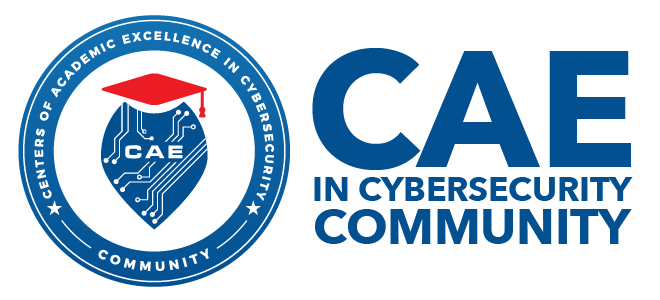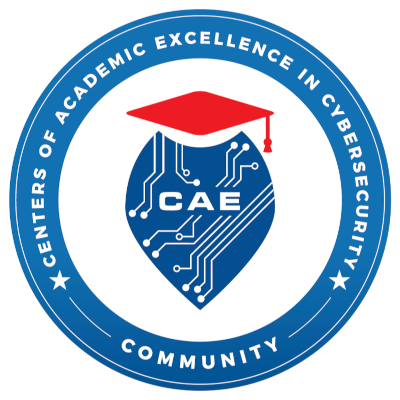
Mark your calendars and come join your friends in the CAE community for a Tech Talk! We are a warm group that shares technical knowledge. CAE Tech Talks are free and conducted live in real-time over the Internet so no travel is required. You can attend from just about anywhere (office, home, etc.) Capitol Technology University (CTU) hosts the presentations using their online delivery platform (Adobe Connect) which employs slides, VOIP, and chat for live interaction. Just log in as “Guest” and enjoy the presentation(s). Below is a description of the presentation(s) and logistics of attendance.
Title/Topic: Can Our Elections Systems Be Hacked?
Date: Thursday, May 18, 2017 at 1:10-1:50 pm EST
Location: https://capitol.adobeconnect.com/cae_tech_talk/ (Just log in as “Guest” and enter your name. No password required.)
Presenter(s): Professor Balakrishnan Dasarathy, PhD, University of Maryland University College
Description: The short answer is “yes.” Sure, it’s possible. It’s unlikely that the effect of a breach would be catastrophic, however.
Several systems—campaign, voter registration and voter ballot systems—all working together to make up our election system. And a closer examination of our election system gives us a more complete picture of the prospect of a hack and its ramifications. In this talk, I will first provide an overview of these systems and how they are interconnected. The vulnerabilities of these systems and their potentials for being hacked will then be examined. What processes and technologies we can put in place to minimize the impact of these attacks will then be discussed.
Arguably, there is a more important question than “can our voting systems can be hacked?” It is, “should citizens trust election results?” About 34 percent of likely voters believe that the coming general election will be rigged, according to a New York Times report last summer. The pressing issue is not just one of information security. It is about assurance and the trustworthiness of all voting technology and processes. I will also address these broader issues in my talk.
Time: 2:00-2:40 pm ET
Location: https://capitol.adobeconnect.com/cae_tech_talk/ (Just log in as “Guest” and enter your name. No password required.)
Presenter: Dr. Bruce McMillin (Missouri University of Science and Technology)
Description: A Cyber-Physical System (CPS) is an engineered physical system with a significant cyber component and consists of many interacting distributed cyber and physical components. CPSs are deployed in critical applications such as such as advanced power electronics in a green electric power system, vehicles in an automated highway system, distributed aircraft navigation systems, chemical process plants, and consumer components of a smart house in which correct operation is paramount. Unintended or misunderstood interactions among the components of a CPS cause unpredictable behavior leading to serious errors. While each component may independently function correctly, their composition may yield incorrectness due to Interference. Interference that violates correctness or security is well-understood in the purely software (cyber) domain. In the CPS domain, interference is much less understood. Security and confidentiality problems are particularly vexing. Attacks such as Stuxnet show how formal security properties can be violated through physical interference with the cyber components. To add to the difficulty, CPS security is difficult to specify in terms of traditional “high” and “low” security.
This talk presents an interpretation of formal information flow properties and interference within the context of a cyber-physical system blending both physical and cyber information flow properties across multiple security domains. This poses the deep scientific question: how to make such systems secure and correct?
Biography: Dr. Bruce McMillin is currently a Professor of Computer Science, Associate Dean of Engineering and Computing, director of the Center for Information Assurance, co-director of the Center for Smart Living and a senior research investigator in the Intelligent Systems Center all at the Missouri University of Science and Technology. He leads and participates in interdisciplinary teams in formal methods for fault tolerance and security in distributed embedded systems with an eye towards critical infrastructure protection. His current work focuses on protection for advanced power grid control. His research has been supported by the United States NSF, AFOSR, DOE, NIST and several Missouri Industries. Dr. McMillin has authored over 100 refereed papers in international conferences and journals. He is leading the distributed grid intelligence project of the Future Renewables NSF Engineering Research Center, an advanced smart grid architecture. He is a senior member of the IEEE and member of the IFIP WG 11.0 on Critical Infrastructure Protection, and member and contributor to the SGIP Smart Grid Interoperability Panel. He currently serves in the IEEE Computer Society’s Board of Governors and is a member of the Computing ABET Accreditation Commission.
Recordings of live presentations are posted to the website below:
https://capitol.instructure.com/courses/510/external_tools/66
Pdf versions of the presentations are posted to the website below:
https://capitol.instructure.com/courses/510/files
Contact Informaiton
CAE Tech Talk events are advertised thru email and posted to the news and calendar section of the CAE community website: www.caecommunity.org For questions on CAE Tech Talk, please send email to CAETechTalk@nsa.gov

